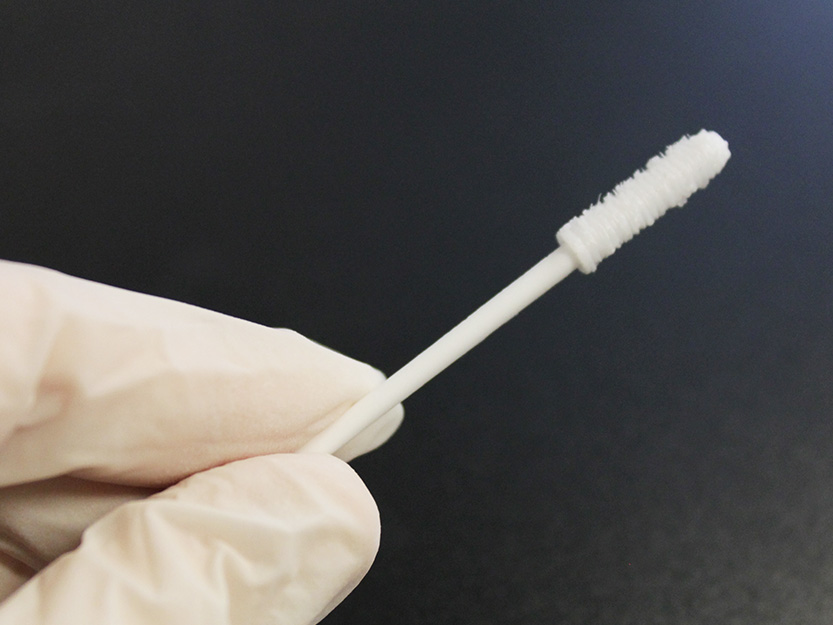UDELAR swabs
Swabs production in health emergency
Kit COVID-19 project
After the declaration of the health emergency, diferent educational institutions in Uruguay launched numerous projects to respond to the different needs that arose in this context. Given the knowledge of the shortage of reagents and supplies for the diagnosis of COVID-19, from the Montevideo Digital Fabrication Laboratory (FabLab MVD) we collaborate in the research, design and development of 3D printed swabs to perform naso and oropharyngeal tests of COVID-19. This swab is part of a kit developed together with the Faculty of Chemistry and in coordination with a broader group that included professionals from the Faculty of Engineering, the University School of Design, the Faculty of Sciences, and the Clínicas Hospital.
The idea arose from teachers and professionals from the Faculty of Chemistry, who contacted our laboratory to begin a joint research process. From the FabLab we are in charge of making the geometric design of two types of swabs: one nasopharyngeal, which is inserted through the nostrils, and another oropharyngeal, which is inserted through the mouth. For one month, from mid-March to mid-April, we design and manufacture more than 100 versions of swab heads with different dimensions, shapes, materials, and technologies.
The first prototypes were made with PLA and PET filament -the most widely used plastics for making architecture and industrial design models-. However, these did not achieve the necessary flexibility, so it was decided to work with TPU -Thermoplastic Polyurethane. This implied a great learning process since this type of flexible filament had hardly been used in the FabLab; especially in relation to the setting of the different printing variables such as speed and extrusion temperature. Regarding the design, different shapes and dimensions were tested taking into account the particular specifications of each swab. Both had to have a certain texture that allowed the loading and unloading of material when taking the sample; another important aspect was
anthat they had to be sufficiently flexible to allow them to bend without breaking, to avoid the danger of dislodging inside the nostrils or mouth. In addition, the polypropylene stem – the stick that serves as the swab’s handle – had to have a point to be broken inside the test tube. Finally, two final designs were selected: a swab with a diameter less than 3 mm for nasopharyngeal tests, and a 3.5 mm swab for oropharyngeal tests.
Once the final prototypes went through a process of sterility control, field validation, and authorization for use by the Ministry of Public Health, small-scale production (60,000 units) was carried out. The project is completed in all its stages -research and design, production and development, and validation-, as well as in terms of the technological transfer of knowledge, by professionals and technicians from the University of the Republic, to national companies of plastics that continue with large-scale production, to cover the needs at the national level.
This project implied a joint effort, and a very intense inter-institutional work inside and outside the laboratory. What motivated us to participate was the need to articulate the knowledge of the University and Uruguayan society; we were interested in making technical knowledge available for specific responses in a crisis context, giving local responses, promoting the national industry and improving the innovation and research capacity of the University of the Republic. The FabLab is presented as a key actor in this type of situation; the speed of prototyping, interdisciplinary knowledge and networking, appear as essential characteristics to respond in this pandemic context. Our biggest challenge was to adapt systems that were oriented to other purposes, to respond to the health crisis since the FabLab Mvd is oriented to the fields of architecture and industrial design, so it was a great challenge to adapt the knowledge generated in the laboratory to a product for medical use.



